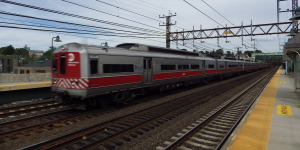Metro-North hit with record fine in retaliation case
The Metro-North Railroad will pay $250,000 to an employee who said he was intimidated and retaliated against after reporting an on-the-job injury in 2011. The U.S. Department of Labor said the fine was a record for punitive damages in a retaliation case.
After a Connecticut coach cleaner hurt his knee after tripping on some displaced floorboards on Nov. 17, 2011, a supervisor told him en route to the hospital that workers hurt on the job are written up for safety and passed over for promotions. Metro-North issued disciplinary charges against him shortly after he reported the injury.
When the worker filed an anti-discrimination complaint with the Occupational Safety and Health Administration on April 12, 2012, the railroad issued further charges against him. The cleaner filed an amended complaint in April 2013. David Michaels, secretary of labor for OSHA, said in an announcement Tuesday that Metro-North”™s conduct was “deliberate and discriminatory.”
“When employees, fearing retaliation, hesitate to report work-related injuries and the safety hazards that caused them, companies cannot fix safety problems and neither employees nor the public are safe,” Michaels said.
According to the administration, unofficial reports from other employees exemplified a culture in which reporting injuries was discouraged and dangerous conditions were not noted. In one unofficial report, an employee smashed her foot but did not file an accident report and showed up to work on crutches “in the hope of keeping her injury record clean.” Another worker caught her hand in a broken door but told investigators she did not file a report for fear of retaliation.
When the National Transportation Safety Board concluded a special investigation into rail safety in the aftermath of several high-profile accidents including derailments, it noted that “Metro-North did not have an effective program that encouraged all employees to report safety issues and observations.” The administration said in its announcement that its findings “provide another example of this.”
“If employees are discouraged from reporting injuries, the employees and the public are endangered as Metro-North cannot correct the conditions which caused the injuries,” the administration said.
Shortly after the administration”™s announcement of the settlement, a train engineer filed suit against Metro-North for unspecified damages regarding a May 2013 derailment near Bridgeport that injured more than 70 people. The train engineer and the engineer of another train are suing the railroad and blaming the condition of the tracks and equipment for the accident.
In the retaliation case, Metro-North will have to pay the employee $250,000 in punitive damages, the maximum allowed by law, and $10,000 in compensatory damages as well as covering attorney fees. The railroad also was ordered to wipe the disciplinary charges from the employee”™s record and conduct training for supervisors and managers about whistleblower rights under the Federal Rail Safety Act.
Aaron Donovan, a spokesman for the Metro-North, told the Business Journal in an email that the processes for the railroad have changed since the events of 2011.
“Since then, Metro-North has made considerable strides to create and promote a safety culture that encourages employees to report safety concerns and injuries without fear of retaliation,” he said.
Among those changes, Donovan said, is a confidential close-call reporting system so employees can report safety issues without fear of reprisal.
“The Metro-North of today has zero tolerance for discipline targeted against those reporting safety violations of injuries, and is expanding training for workers and supervisors on safety requirements and adherence to critical safety rules,” he said.
